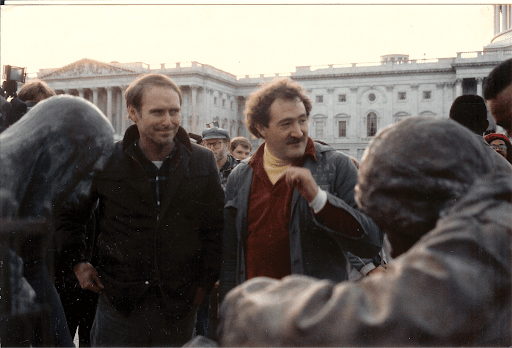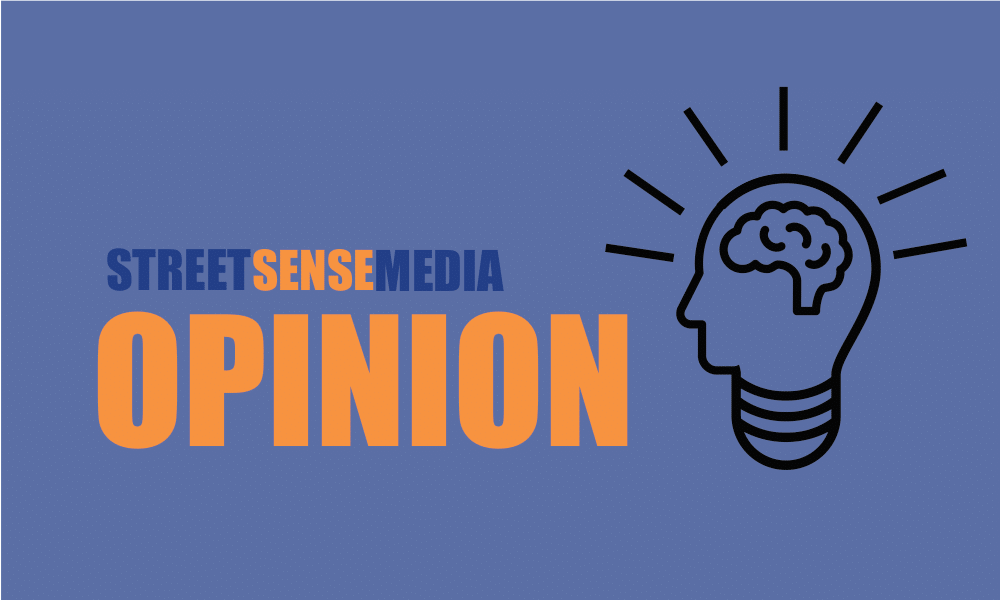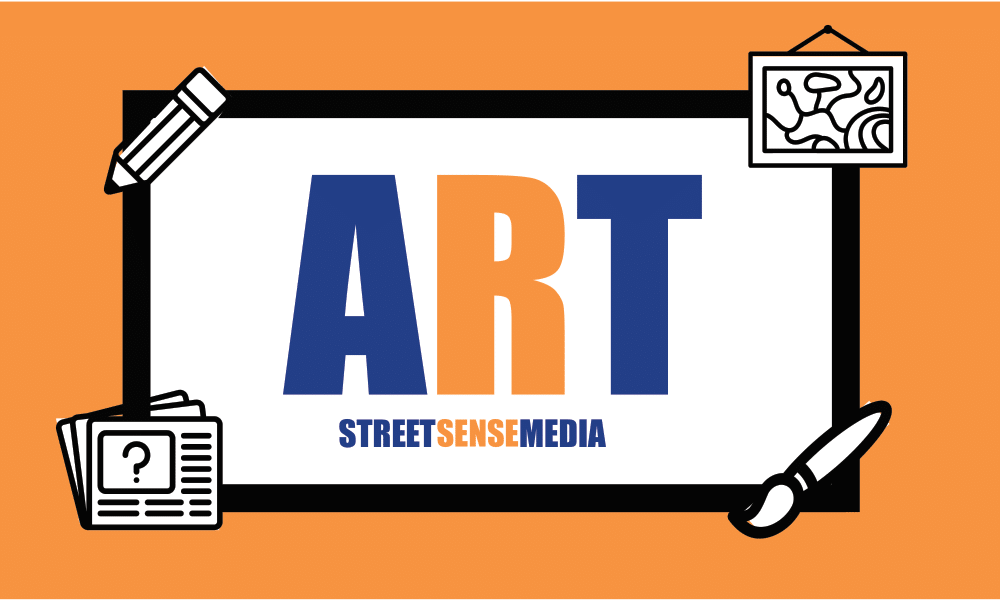At 18, John Alley left Puerto Rico with a dog, an accordion and the clothes on his back, looking for a fresh start from the island he had called home. Alley first went to New York City, but without connections and nowhere to stay when he arrived, he experienced homelessness there for many years. Twenty years later, Alley, now a Street Sense Media vendor, is still housing insecure, and has been vocal about the discrimination he experienced while unhoused in D.C.
On June 28, the D.C. Council passed the Human Rights Enhancement Amendment Act to amend the Human Rights Act of 1977, adding homelessness as a protected class. The act aims to protect people experiencing homelessness from discriminatory practices, incorporate educational and sensitivity training for law enforcement for their interactions with people experiencing homelessness and establish employee protections against workplace harassment.
If the bill is approved by the mayor and Congress, D.C. will become the first city in the country to make discrimination based on homelessness status illegal. Since homelessness was not a protected class, there has been no legal recourse for individuals who experience discrimination based on homelessness status, including individuals like Alley.
Alley developed a brain tumor three years ago and was unable to work due to a visual impairment. Because of his disability and homelessness status, he qualified for a housing voucher. Alley had been staying in a shelter and was looking for an apartment where he could recover from his surgeries and take care of his mother.
Alley went to tour an apartment with hopes of securing housing with his voucher, but his excitement quickly turned into disappointment when the property manager learned he was experiencing homelessness and turned him away.
“He came back and said ‘sadly, we can’t have you here,” Alley said. Alley protested, saying the apartment legally had to accept his voucher, but the manager continued. “‘Nope, not here in this place. We are voucher free. This is not the place for you,’ he told me. And just like that, I couldn’t. I was shocked,” Alley said.
Under the Eviction Record Sealing Authority Act of 2021, it is illegal for landlords and housing providers to turn down housing vouchers in D.C. or charge voucher holders inflated rent prices. Despite this law, many people still report discrimination from housing providers due to their vouchers or homelessness status. Overall, individuals experiencing homelessness are more likely to face discrimination and harassment in securing housing, employment and medical services.
“It’s class discrimination. It puts you in a sore spot,” Alley said. “If you have people discriminating against you… it’s because you’re homeless. It’s a class discrimination because you’re poor.”
Anti-discrimination legislation before the council, for a third time
The Human Rights Enhancement Amendment Act comes as a modified version of the Michael A. Stoops Anti-Discrimination Amendment Act, which first sought to add homelessness as a protected status. The bill was named after the advocate Michael A. Stoops, in honor of his dedication to ending homelessness in the District. Stoops died on May 1, 2017, just weeks before the bill was first introduced to the council.
Though the act was largely supported by many advocacy organizations in the District, the bill died in the D.C. Council in 2018, and again in 2020 when it was reintroduced. The Human Rights Enhancement Amendment Act takes many of the provisions from the initial bill.
D.C.’s Human Rights Act currently protects race, sex, religion, age, marital status, disability and 13 other classes. Added as a protected class, homelessness will be defined as “an individual or family that lacks a fixed, regular, and adequate nighttime residence,” provided by the Homeless Services Reform Amendment Act.
Adding homelessness as a protected class under the Human Rights Act will ban discrimination in the workplace, housing, educational institutions, public transportation and businesses, as well as government services and programs. Discriminatory practices can include restrictions from public or private areas, such as asking people experiencing homelessness to leave restaurants or businesses.
While people experiencing homelessness may be protected from discrimination by their other traits, such as their personal appearance, it’s much easier to prove discrimination based on housing status, according to the National Coalition for the Homeless (NCH).
Failure to comply could result in fines, lawsuits or other forms of restitution, when filed as a complaint with the Office of Human Rights.
The estimated cost to implement the bill is $1.5 million over a four-year financial plan; these funds are already included in the fiscal year 2023 budget and financial plan for the Office of Human Rights.
The bill was introduced by Councilmembers Robert White and Charles Allen in April 2021, along with five others.
“This legislation will help restore dignity for people who suffer discrimination. If an employer, retailer, or landlord turns away a person based on their actual or perceived homelessness status, and the person can prove that that happened by a preponderance of the evidence, then the person may be entitled to monetary damages or other remedies,” White said in an interview with Street Sense Media.
White added that he hopes the act will “push everybody to think twice” before being hostile toward or discriminating against a person experiencing homelessness.
New training for law enforcement
Under the act, police will undergo anti-discrimination and sensitivity training. Unhoused people experience police violence at higher rates — according to an NCH study, 70% of African Americans experiencing homelessness reported that they faced discrimination from law enforcement.
Businesses often resort to calling the police to have an individual forcibly removed due to loitering or their perceived homelessness status. Under the Human Rights Enhancement Amendment Act, this practice would become illegal.
“Improving that relationship would definitely help the police understand homelessness and what it means for those people experiencing homelessness. It would be a good thing,” Lynn Amano, the director of advocacy at the homeless services provider Friendship Place, said in support of the act.
Other parts of the country have made similar efforts. Hospitality House, the county’s largest homeless shelter, introduced the Peace Officers and Standards Training curriculum to the Nevada City Police Department. The curriculum included de-escalation training, crisis stabilization resources and sensitivity training in an attempt to decrease the amount of citations given to people experiencing homelessness.
‘Homeless Bill of Rights’
Reginald Black, a workforce development specialist, vendor with Street Sense Media and director of the People for Fairness Coalition, has worked on implementing homelessness as a protected class in D.C. for many years with various organizations and advocates, including Michael Stoops.
“This is something that has a national connotation. This was part of a movement to create what is essentially a homeless Bill of Rights. D.C. was different because it had a Human Rights Act already,” Black said. “We just needed the definition for homelessness to be called out as one of those traits.”
Now that the bill has passed, it must be reviewed by the mayor and undergo congressional review before it can be passed as a law. The bill could go into effect as early as October 2022.
“This is just a step in the road to ending homelessness,” Black said. “It’s an important step. I’m sad that Mike didn’t get to see this day, where homelessness may actually be a protected class in the District of Columbia. He worked a majority of his life to get this.”
Correction 07.07.2022
The print edition of this article had incorrectly listed the dates the bill had died in the council. This article has been updated to accurately reflect when the legislation was introduced.








